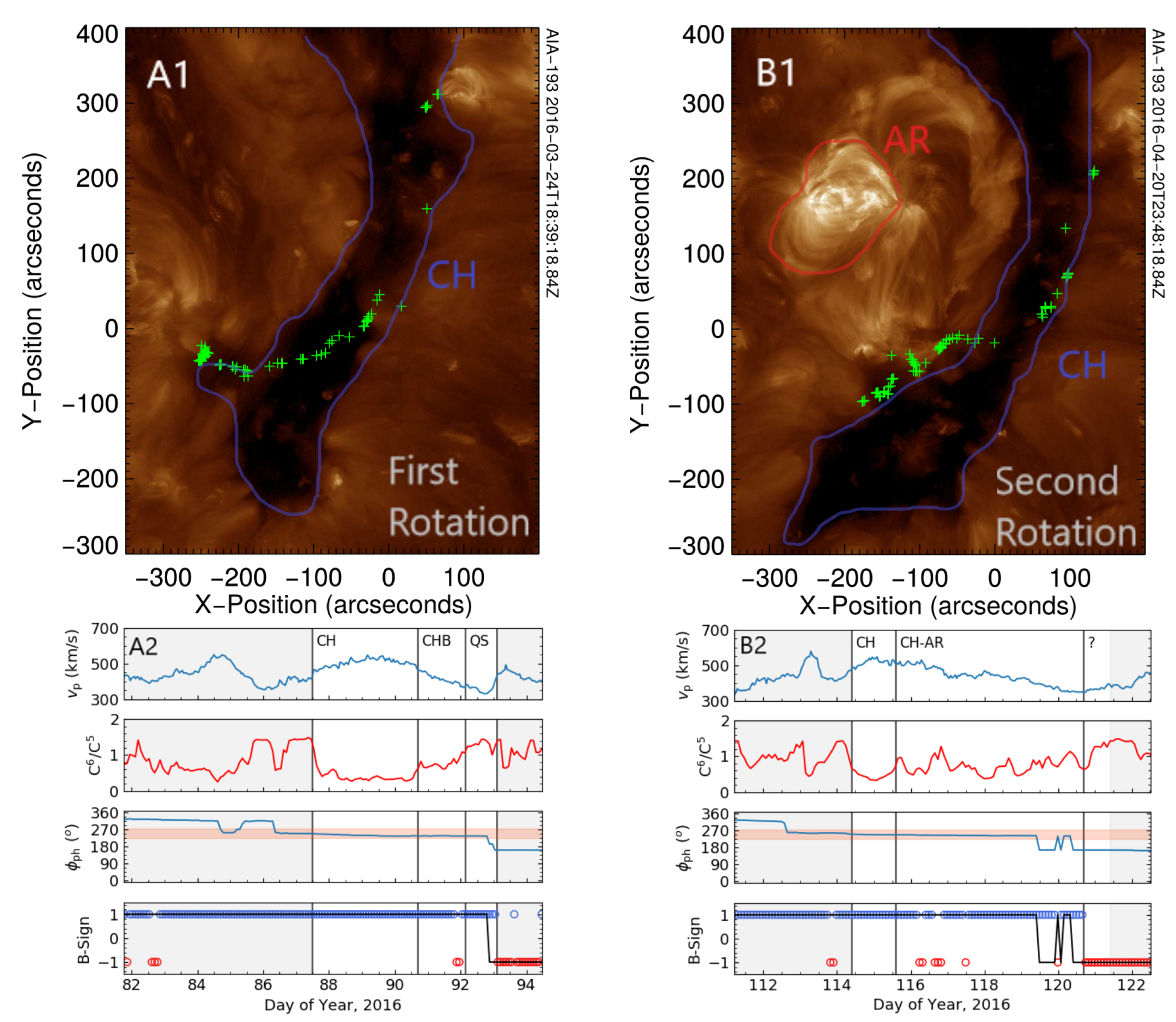MIST
Magnetosphere, Ionosphere and Solar-Terrestrial
Active Region Modulation of Coronal Hole Solar Wind
By Allan Macneil (University of Reading)
The solar wind is the continuous outflow of plasma from the Sun’s atmosphere (the corona) into interplanetary space along ‘open’ magnetic field. The mechanisms which produce the solar wind; opening the coronal magnetic field, accelerating the plasma, and imbuing it with a range of compositional and dynamical properties, are not fully understood. 'Coronal holes’, which are regions of open magnetic field, are known to be the source of the ‘fast’ (v > 500 km/s) solar wind. However, the origins of ‘slow’ (v < 400 km/s) solar wind are unclear, particularly as slow wind properties imply origins in closed magnetic field regions. We present a case study into one candidate slow wind source: active regions.

Figure 1: Top row shows EUV solar images of the source coronal hole (CH), and the CH plus active region (AR) during the first and second rotations. The CH and AR are outlined in blue and red, and green crosses show the location of mapped solar wind source locations. The lower panels show in situ and mapping time series are shown for each associated solar wind period.
Active regions are locations of concentrated magnetic flux. They are associated with bright loops in the corona, and are a possible slow solar wind source. In April 2016, an active region emerged at the eastern boundary of a coronal hole which had produced Earth-directed solar wind one solar rotation prior (see Figure 1). This unique observational configuration is shown in Figure 1. We study what changes the newly-emerged active region causes in the solar wind, by contrasting linked in situ solar wind and remote sensing coronal observations between the two periods. Primarily, we find that the active region causes increased variability in composition and structuring of the solar wind located at the edge of the coronal hole stream. We conclude that this new variability is most likely due to interaction between the active region and the coronal hole in the form of loop-opening interchange reconnection. This process changes the open field topology around the coronal hole boundary, and may sporadically release plasma of a range of properties from previously closed magnetic fields into the solar wind.
For more information, please see the paper:
Macneil, A. R., Owen, C. J., Baker, D., et al. (2019). Active Region Modulation of Coronal Hole Solar Wind. The Astrophysical Journal, 887(2), 146, https://doi.org/10.3847/1538-4357/ab5586